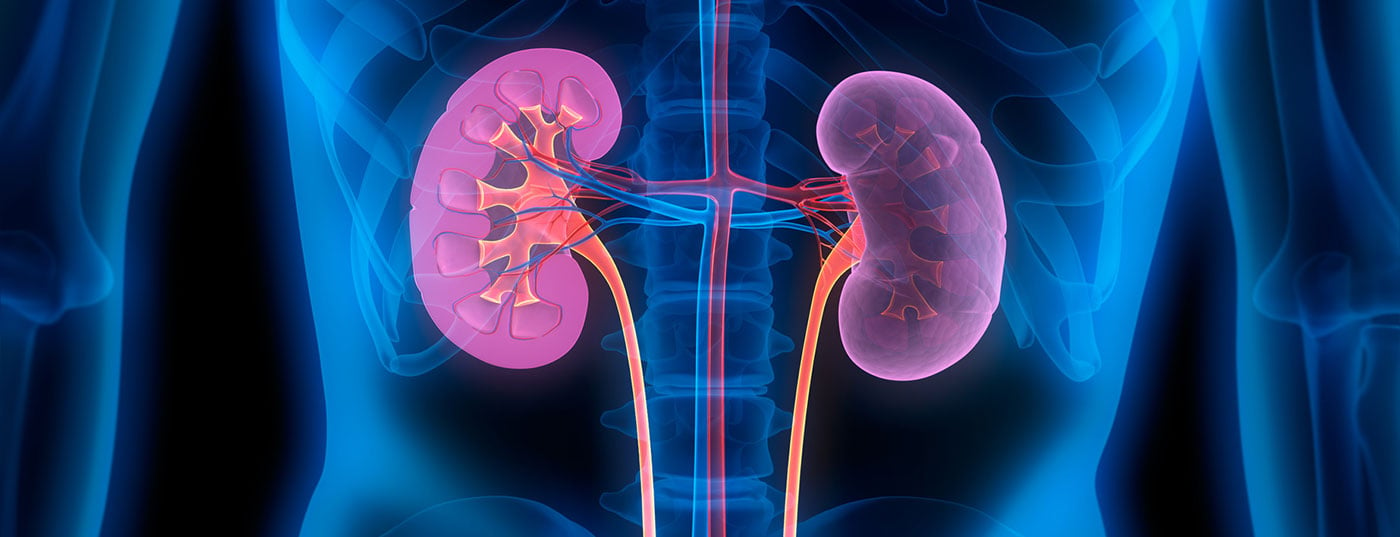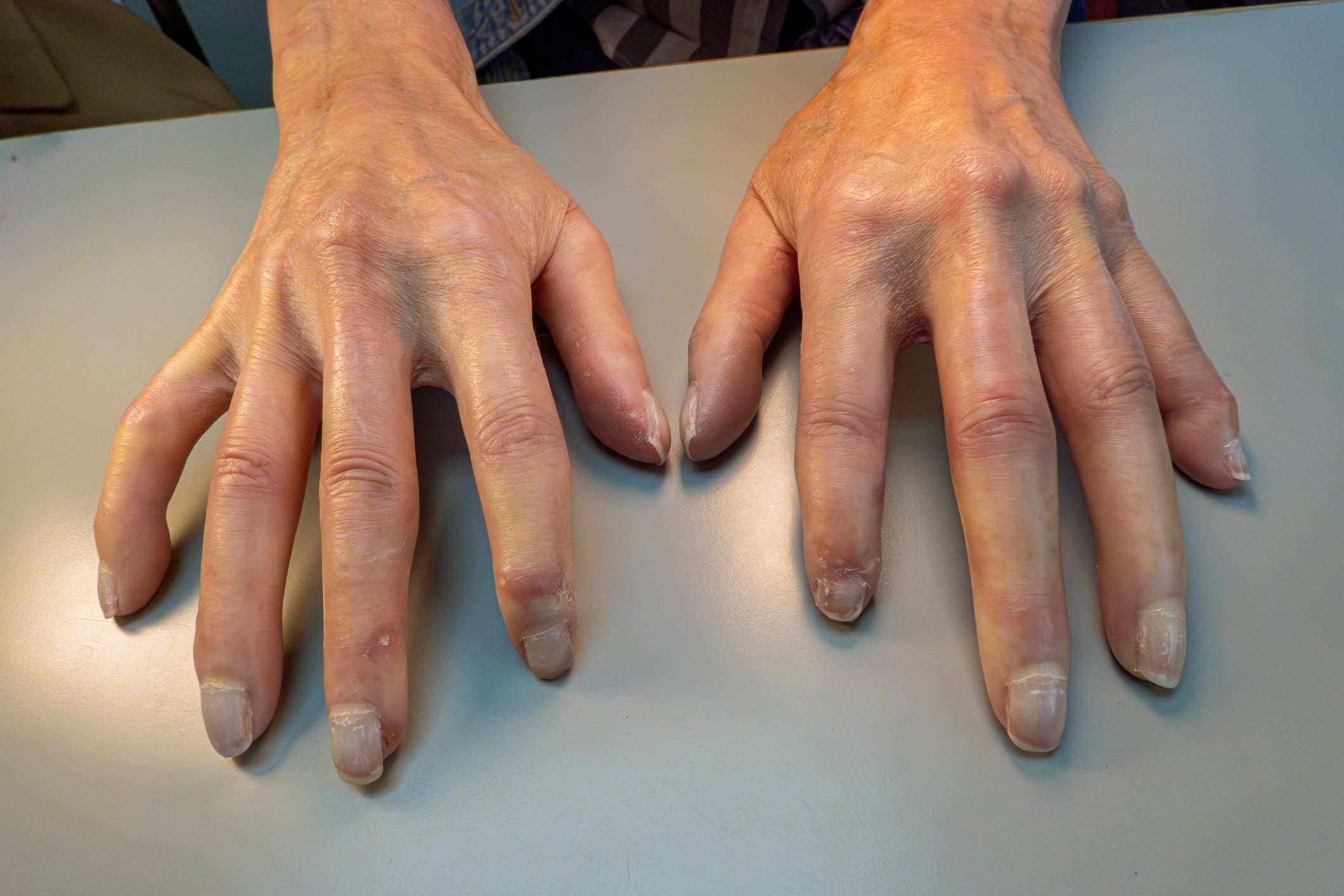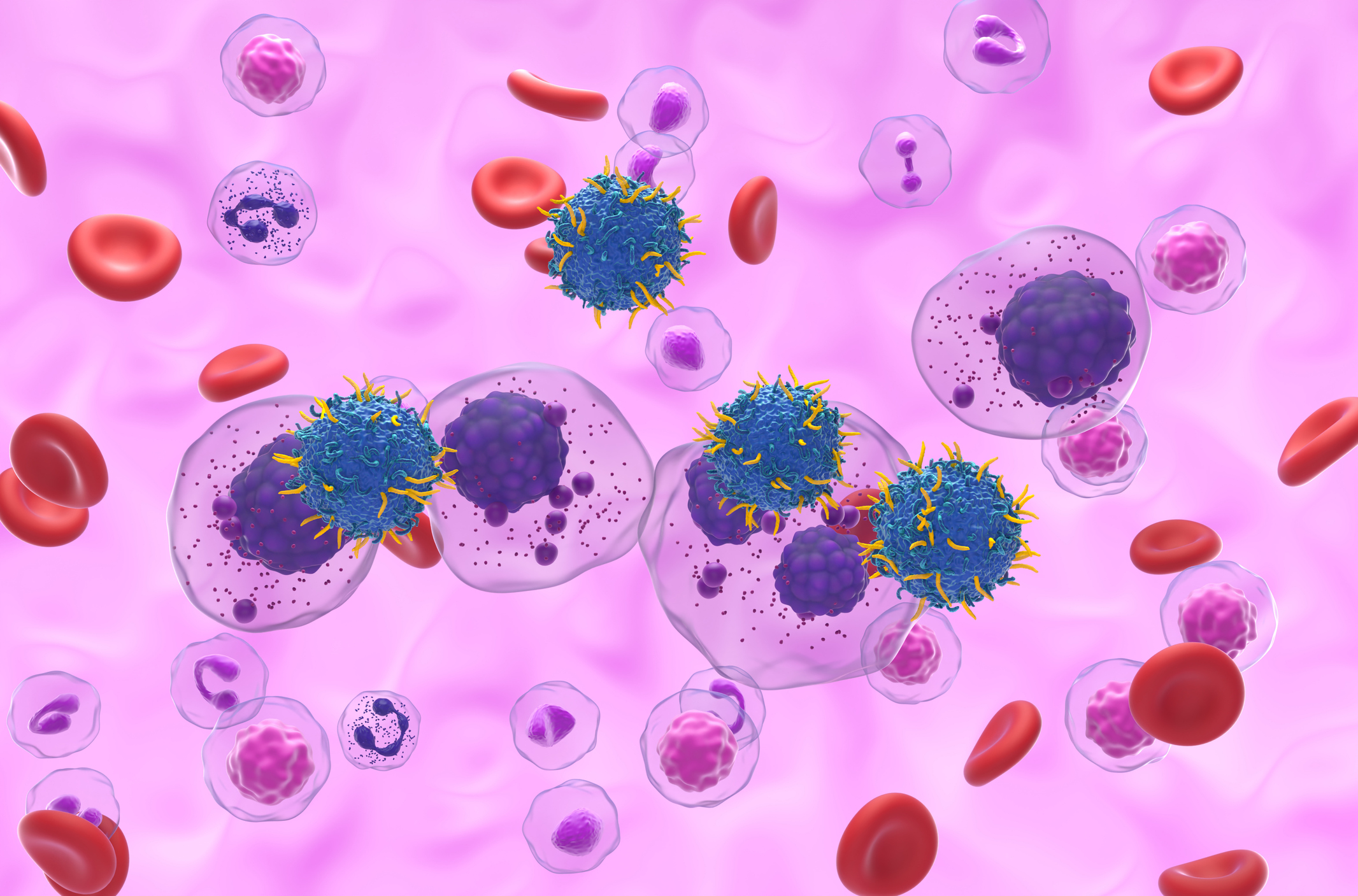Patients with chronic heart or kidney failure often suffer from hyperkalemia. The use of RAAS inhibitors in particular may increase the risk of this life-threatening electrolyte disturbance. Therefore, therapy of the underlying disease with these drugs is then often discontinued. However, this does not have to be!
There is great fear of elevated potassium levels in patients with chronic heart or renal failure on therapy with RAAS inhibitors. For this reason, insufficiently high doses are often used, sometimes with serious consequences. Depending on age, physique and gender, there are about 90-150 g of potassium in the human body. It is in balance with sodium and this ratio is essential for the regulation of many vital cellular functions. Hyperkalemia is defined as a serum potassium level of >5 mmol/l [1]. Potassium excretion is 90% via the kidneys. To detect the cause of elevated potassium levels, the glomerular filtration rate (GFR) is determined. A GFR <15 ml/min/1.73 m2 indicates chronic renal failure, and a GFR >15 ml/min/1.73 m2 possibly indicates a disorder in the renin-angiotensin-aldosterone system (RAAS) [2–4]. If the ECG shows a peaked T, a wide QRS complex, and a flattened P wave, it is acute hyperkalemia and must be treated effectively without delay. The goal is rapid stabilization of the myocardium to minimize the risk of life-threatening arrhythmias. This can be achieved by substitution of calcium gluconate, insulin and dextrose, beta-2 receptor antagonists, or sodium bicarbonate.
If chronic hyperkalemia is present, potassium intake should be stopped to date and medications with potential potassium-boosting effects should be discontinued. These include the RAAS inhibitors. RAAS regulates fluid and electrolyte balance in the body and keeps circulating blood volume constant. Accordingly, an activated RAAS is also responsible for the excretion of potassium. Due to the high risk of developing hyperkalemia, only just under 30% of patients are optimally treated with RAAS inhibitors [5]. This means that almost two-thirds of patients are under-treated. In up to 16%, treatment is discontinued altogether. This has a correspondingly negative effect on the prognosis of those affected. The mortality rate in undertreated patients with renal and cardiac failure is at least twice that in patients on maximal RAAS inhibitor doses [5].
Guidelines recommend optimized therapy doses
Therefore, to achieve optimal therapeutic benefit, current guidelines recommend exploiting the potential of RAAS inhibitors [6]. However, to keep potassium levels in balance over the long term, potassium intake should be restricted. This includes avoiding foods high in potassium and administering a potassium binder or cation exchanger. Patiromer, a non-absorbable polymer, convinced with its efficacy and safety in several studies [7–9]. It exchanges calcium for potassium, magnesium, and sodium in the intestine, depending on the pH and concentration of the respective cations [6]. Administration of the potassium binder resulted in normalization of elevated serum potassium levels, parallel treatment with RAAS inhibitors could be continued, and potassium lowering remained effective and safely achievable during continuous outpatient therapy [6].
Cyclosilicate, another potassium-lowering compound, is in the starting blocks and could be available in the near future. The cation exchanger is able to selectively absorb potassium in exchange for sodium. Study results show that treatment resulted in a significant reduction in potassium levels within 48 hours [10]. It remains to be seen what further developments will look like.
Literature:
- Einhorn LM, Zham M, Hsu VD, et al: Arch Intern Med 2009; 169: 1156-1116.
- www.cme-kurs.de/kurse/hyperkaliaemie-management-update-2018/ (last accessed on 31.05.2020)
- Lehnhardt A, Kemper MJ. Pathogenesis, Diagnosis and Management of Hyperkalemia. Pediatr Nephrol 2011; 26: 377-384.
- Freeman SJ, Fale AD. Muscular paralysis and ventilatory failure caused by hyperkalaemia. Br J Anaesth 1993; 70: 226-227.
- Epstein M, Reaven NL, Funk SE et al. Evaluation of the Treatment Gap Between Clinical Guidelines and the Utilization of Renin-Angiotensin-Aldosterone System Inhibitors. Am J Manag Care 2015; 21: 212-222.
- https://dgk.org/daten/V2018_026-Patiromer.pdf (last accessed on 31.05.2020)
- Bakris GL, Pitt B, Weir MR, et al: Effect of Patiromer on Serum Potassium Level in Patients With Hyperkalemia and Diabetic Kidney Disease: The AMETHYST-DN Randomized Clinical Trial. JAMA 2015; 314:151-161.
- Weir M, Bakris GL, Bushinsky DA, et al: Patiromer in Patients With Kidney Disease and Hyperkalemia Receiving RAAS Inhibitors. N Engl J Med 2015; 372: 211-221.
- Pitt B, Anker SD, Bushinsky DA, et al: Evaluation of the Efficacy and Safety of RLY5016, a Polymeric Potassium Binder, in a Double-Blind, Placebo-Controlled Study in Patients With Chronic Heart Failure (The PEARL-HF) Trial. Eur Heart J 2011; 32: 820-828.
- Anker SD, Kosiborod M, Zannad F, et al: Maintenance of Serum Potassium With Sodium Zirconium Cyclosilicate (ZS-9) in Heart Failure Patients: Results From a Phase 3 Randomized, Double-Blind, Placebo-Controlled Trial. Eur J Heart Fail 2015; 17: 1050-1010.
CARDIOVASC 2020; 19(2): 26












